Japan tsunami remembered five years on
- Published
The quake hit at 14:46 local time (05:46 GMT) and this is how the disaster unfolded
Japan is marking the fifth anniversary of the earthquake and tsunami that left more than 18,000 dead or missing.
PM Shinzo Abe and Emperor Akihito are attending a memorial in Tokyo, and joined a moment of silence nationwide at the exact moment the quake hit.
The magnitude-9.0 quake struck offshore, creating a vast water surge that devastated the north-east coast.
It also triggered the world's worst nuclear disaster since Chernobyl, at the Fukushima Daiichi nuclear plant.
Water inundated the plant, taking cooling systems offline which set off a series of meltdowns.
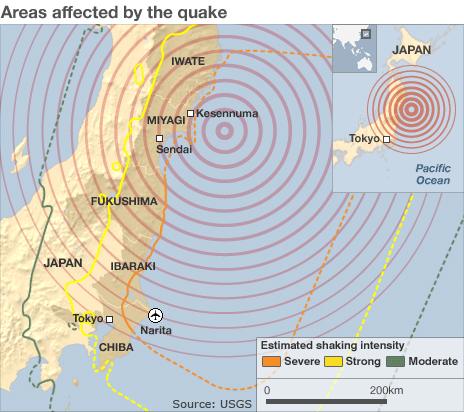



The subsequent disaster spewed radiation over a wide area and forced the evacuation of more than 160,000 local people.
Five years on, most have not been able to return to their homes, despite extensive decontamination work.
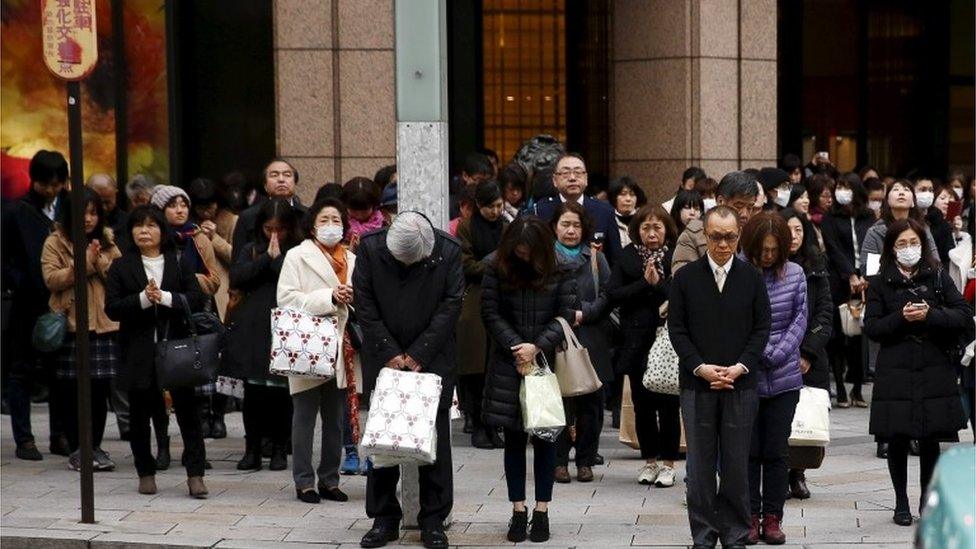
People in Tokyo stopped in the streets to observe the moment of silence
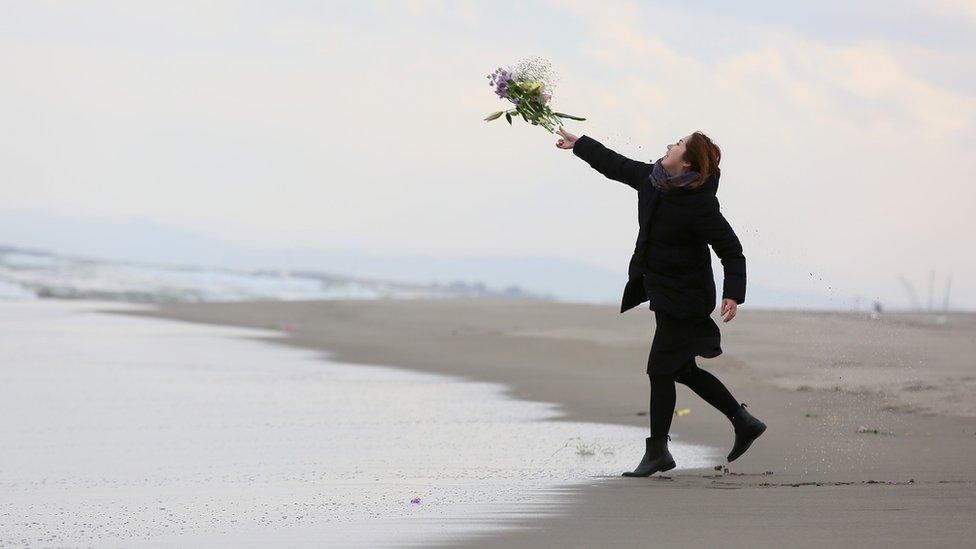
People marked the anniversary in public gatherings and more personal acts
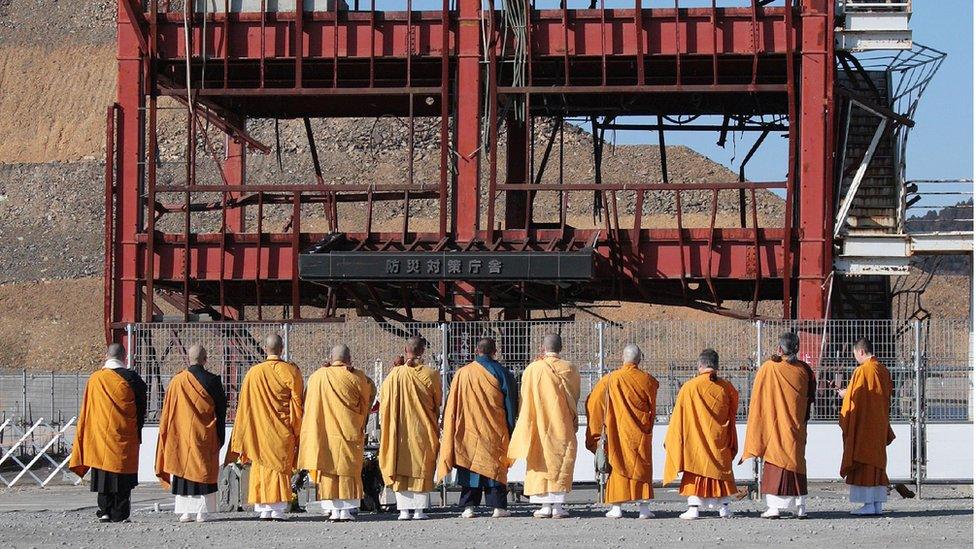
Buddhist monks gathered to pray in front of the former disaster prevention centre in Minamisanriku
The earthquake on 11 March 2011 was one of the most powerful ever recorded.
But it was the resulting tsunami that claimed the most lives, as a wall of seawater powered through coastal areas of Tohoku, flattening entire towns and villages.
At 14:46 Tokyo time (05:56 GMT), the exact moment the quake was detected, people across Japan bowed their heads as a mark of respect for the victims.
Bells rang, and in the capital the underground metro came to halt.
"Many of the people affected by the disaster are aging, and I worry that some of them may be suffering alone in places where our eyes and attention don't reach," Emperor Akihito said at the ceremony.
The day before the anniversary, Prime Minister Shinzo Abe reiterated his government's commitment to nuclear power, saying Japan "cannot do without it" in the long term.

How far has tsunami area come in five years?
Rupert Wingfield-Hayes reports from tsunami-hit coast
180,000 people have not returned home, of which 100,000 are Fukushima evacuees.
As of 12 February 174,000 people were still living in temporary, rental or other housing as evacuees.
Nearly 800,000 tons of tainted water is stored in more than 1,000 tanks at the Fukushima plant. No firm plans have been made to dispose of the water.
The government-set time frame for intensive reconstruction will be over at the end of this month.
Source: Reconstruction agency

All of Japan's nuclear power plants were ordered offline amid safety concerns following the Fukushima disaster, forcing it to rely on expensive imported fossil fuels for power.
Only a few have since been restarted, despite opposition from residents who say not enough has been done to ensure such a disaster can never happen again.
Earlier this week, two plants were ordered to shut down again because of safety fears.
Only one man lives in Tomioka, near the Fukushima Daiichi nuclear plant.
Overall 470,000 people were evacuated from the area around Fukushima as the scale of the radiation threat became clear.
The government has spent billions of dollars on reconstruction work, but much remains to be done and many have never been able to return.
Takagi Tsuyoshi, Japan's minister of reconstruction, promised the work would be completed.
For many survivors though, emotional difficulties are their main concern.
"Infrastructure is recovering, hearts are not. I thought time would take care of things," said Eiki Kumagai, a volunteer fireman.
He was in Rikuzentakata, one of the worst hit areas, and lost 51 colleagues in the tsunami.
"I keep seeing the faces of those who died," he told Reuters. "There's so much regret, I can't express it."
- Published10 March 2016
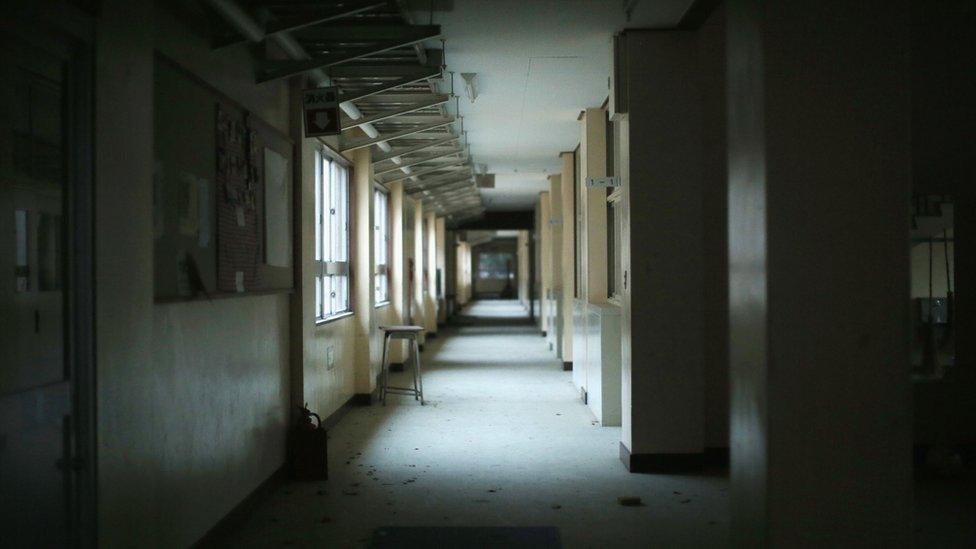
- Published9 March 2016
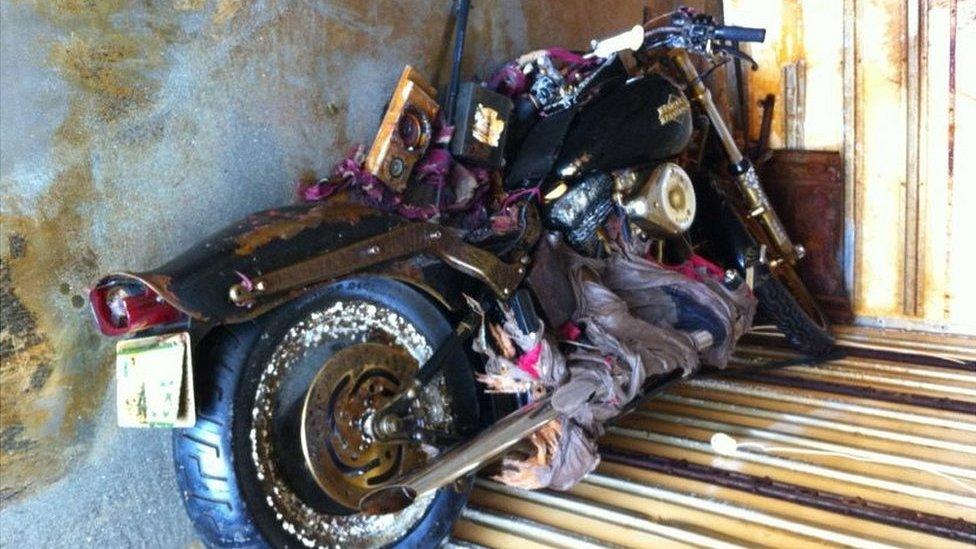
- Published10 March 2016
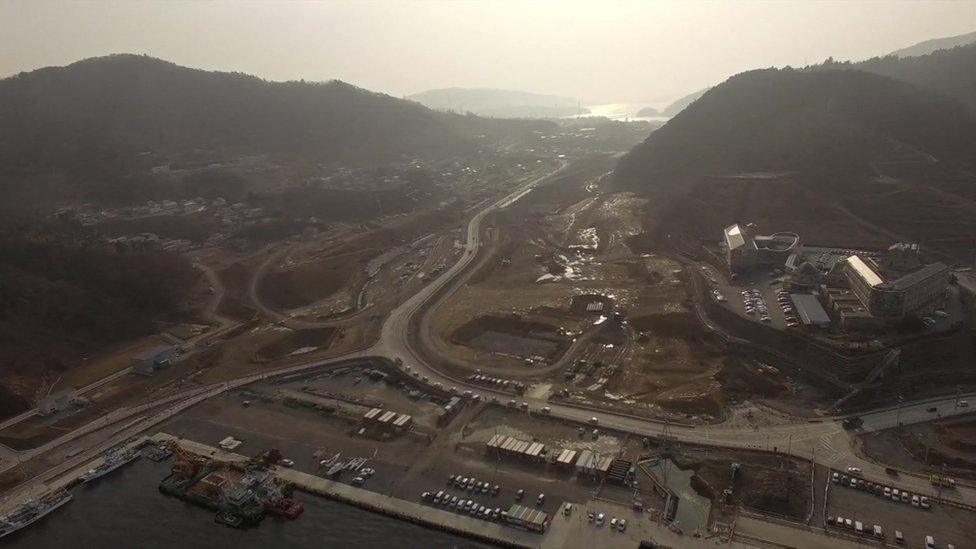
- Published29 February 2016
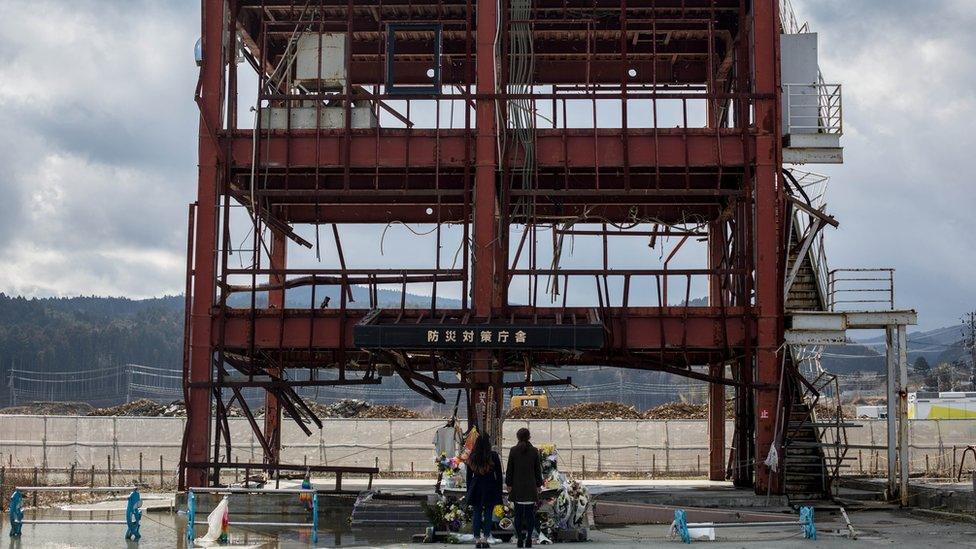
- Published15 July 2015
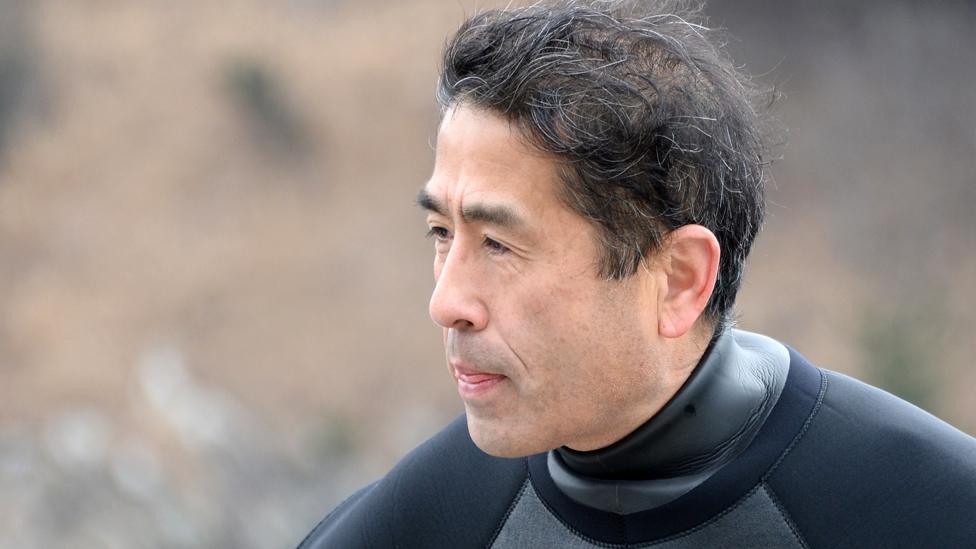
- Published21 July 2011